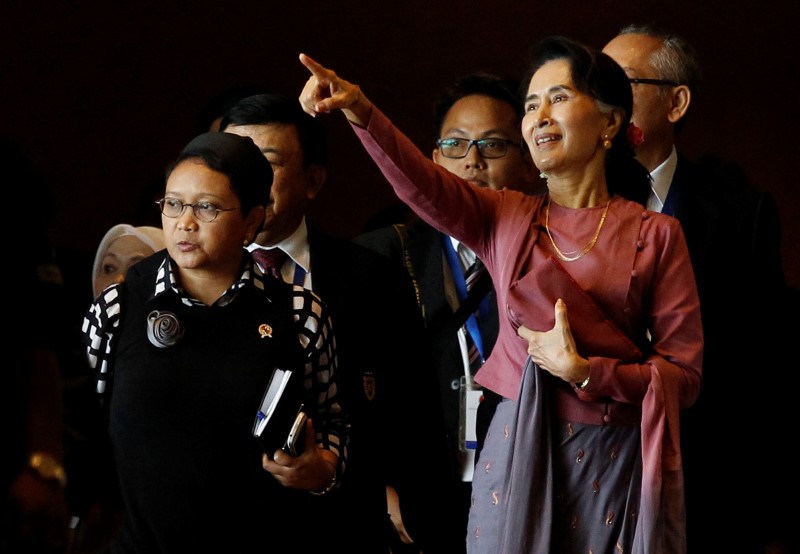
Indonesia Foreign Minister Retno Marsudi and Myanmar State Counsellor Aung San Suu Kyi.
Yangon, Myanmar, 20 Rabiul Awwal 1438/20 December 2016 (MINA) – Myanmar has thanked its neighbors for their offers of help in resolving “complex and long-standing” issues at the heart of disturbances in its westernmost state, during which anything between 77 and 400 Rohingya Muslims have died.
Also Read: Greek Port Workers Block Military Shipment to Israel, Refuse to Support Genocide in Gaza
A regional meeting in Yangon on Monday saw State Counselor Aung San Suu Kyi brief Association of Southeast Asian Nations (ASEAN) foreign ministers on developments in Rakhine State, following global complaints that a military crackdown in an area housing the country’s Muslim minority had been excessive.
“Minister [Suu Kyi] talked to them about Rakhine State openly and honestly,” a director general at Myanmar’s foreign ministry said in the former capital.
“We hope ASEAN member countries now understand that we are handling the situation in accordance to laws [and] we also hope they understand we need more time to restore peace and stability in the area,” she told Anadolu Agency by phone.
Amnesty International claimed in a report released Monday that the military’s response to Oct. 9 attacks by assailants on police stations in Maungdaw, a district predominantly inhabited by Rohingya near the border with Bangladesh, “went far beyond what is necessary and proportional”.
Also Read: Germany Slams Israeli Plan to Relocate Gazans as Human Rights Violation
Myanmar has said that at least 94 people — 17 police and soldiers and 77 alleged “attackers” (including six who reportedly died during interrogation) — have been killed and some 600 suspects have been detained for alleged involvement in the attacks and during a subsequent military crackdown.
The government said Monday that the arrests were continuing, and a further “Muslim man” had been shot dead “as he attacked police”.
Rohingya advocacy groups, however, have claimed around 400 Rohingya — described by the United Nations as among the most persecuted groups worldwide — were killed in the military operations, women were raped and Rohingya villages torched.
Also Read: Freedom Flotilla’s ‘Handala’ Departs from Italy for Gaza in Effort to Break Israeli Blockade
Alleged arbitrary arrests and extrajudicial killings
On Monday, ASEAN member Malaysia — extremely vocal in its criticism of the crackdown — underlined in a statement that allegations of human right abuses during the security operations were troubling.
“There continue to be reports from many sources alleging arbitrary arrests, extrajudicial killings [including of children], rape by soldiers, burning of Rohingya villages as well as destruction of homes and places of worship,” it said.
Soon after Monday’s meeting finished, Singapore’s foreign minister — also in attendance — said in a statement posted to his Facebook page that the situation in Rakhine is “complex and long-standing”.
Also Read: Myanmar Military Airstrike Hits Monastery, Killing 28 Displaced Civilians
“It will take time, mutual trust, goodwill and determination to resolve. We had an open, frank and constructive discussion on how best to help, including the provision of humanitarian aid,” Vivian Balakrishnan said.
“We also discussed how ASEAN can best assist Myanmar in seeking a viable and long-term solution for the benefit of all the affected communities in Rakhine.”
Meanwhile, Indonesia’s foreign minister, Retno Marsudi, said those in attendance had “an honest and transparent exchange of views”.
“Two most important elements came out of our discussions,” she told the reporters after the meeting.
Also Read: UN Rights Office Reports 798 Gazans Killed While Seeking Humanitarian Aid Since Late May
“First is that Myanmar will regularly update ASEAN member countries about the developments in Rakhine State… The second is Myanmar appreciates very much the offer from ASEAN member countries for utilitarian assistance. So [now], the access of humanitarian assistance will be open.”
Rohingya issue should be resolved together
Malaysia’s Foreign Minister Anifah Aman said that ASEAN members had offered Myanmar any necessary assistance to restore peace and stability in Rakhine.
Also Read: Arakan Forces Impose Movement Restrictions on Rohingya in Maungdaw
“We stressed that the issue has impact on the regional countries, and is not a domestic issue anymore,” he told reporters.
“So we suggest that the issue should be resolved together.”
In a statement released last week, Malaysia underlined its concerns that if the crisis in northern Rakhine is not urgently addressed it will impact the security and stability of the region, including Malaysia.
“The exodus of more refugees to neighboring countries, including Malaysia, would witness a repeat of the 2015 boat people crisis,” it said, adding that its push for a regional meeting in 2015 had led to a resolution of the crisis and saved innocent lives.
Also Read: US National Education Association Passes Resolution to Ban Pro-Israel Curriculum in Schools
The outcome of the 2015 meeting saw Malaysia and Indonesia agree to provide humanitarian assistance and temporary shelter for around 7,000 boat people — Rohingya and Bangladeshi — stranded along the countries’ maritime borders while awaiting resettlement or repatriation.
“That is why Malaysia views the current situation in the northern Rakhine State as no longer an ‘internal affair’ but one of regional consequence,” it stated.
Myanmar has highlighted ASEAN’s non-interference principle in its response to countries accusing it of human rights atrocities in its treatment of Rohingya, highlighting fellow member Indonesia’s “positive and constructive” approach while criticizing Malaysia’s.
Monday’s meeting was also attended by foreign ministers from Brunei Darussalam, Cambodia, the Philippines, Thailand and Vietnam. (T/R07/R01)
Also Read: Zohran Mamdani Affirms Full Support for Palestine and Zionist Boycott Movement
Mi’raj Islamic News Agency (MINA)
Also Read: Macron Urges Joint France-UK Recognition of Palestinian State







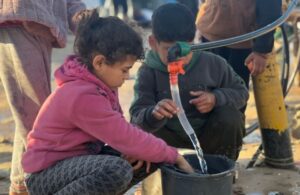
![Israeli tanks and APC’s gather by the Israeli – Lebanese border. Amid Israel’s escalating campaign against Hezbollah in Lebanon on September 30, 2024. [Erik Marmor/Getty Images]](https://en.minanews.net/wp-content/uploads/2024/10/IMG_20241001_203226-300x197.jpg)


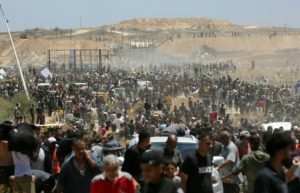
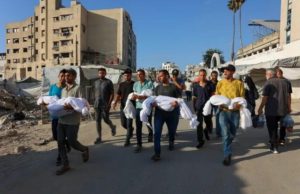
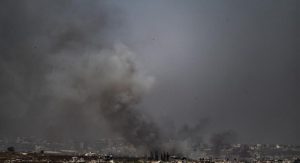
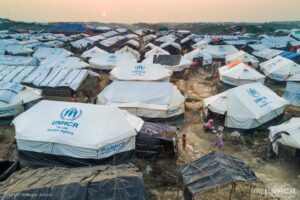
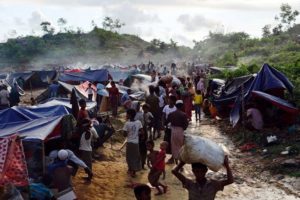
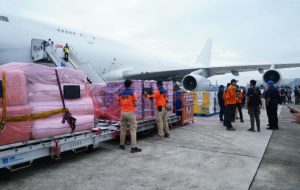
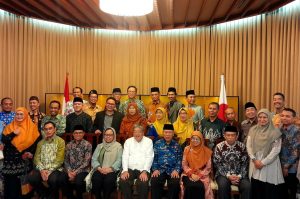








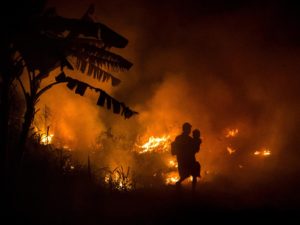



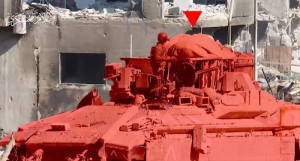



 Mina Indonesia
Mina Indonesia Mina Arabic
Mina Arabic